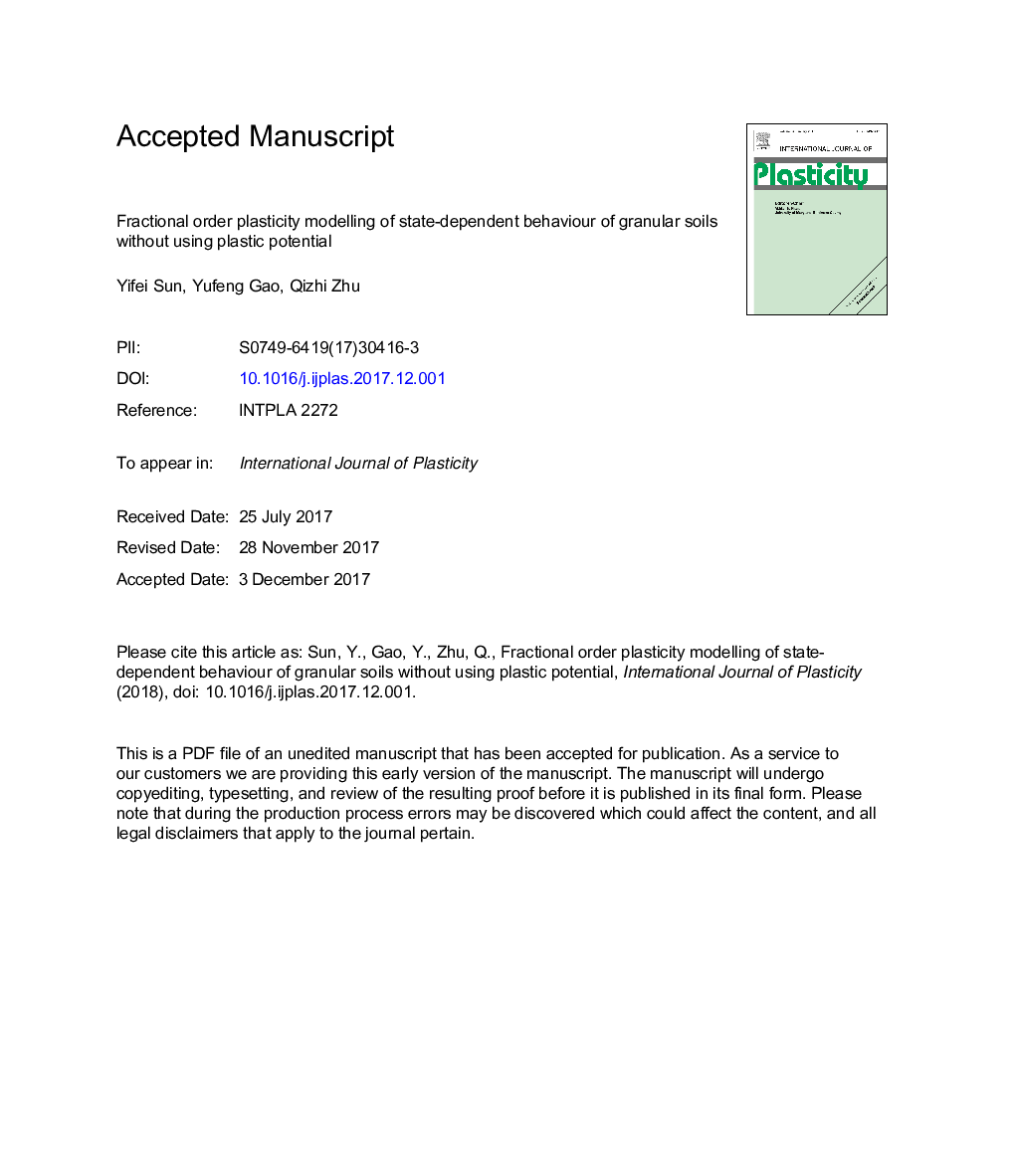| Article ID | Journal | Published Year | Pages | File Type |
|---|---|---|---|---|
| 7174852 | International Journal of Plasticity | 2018 | 43 Pages |
Abstract
The strength and deformation behaviour of granular soil is strongly dependent on its stress state and loading history. Due to the change of soil state, the plastic flow direction and loading direction are usually non-coaxial and a plastic potential different from the plastic loading function is generally mandatory for capturing correctly volumetric deformation. For that, some state variables have been involved phenomenologically in plastic equations, bringing about some complexity in model formulations and physically meaninglessness of certain parameters. This paper presents a new approach to describing the state-dependent stress-dilatancy behaviour of granular soil using fractional order derivations. Unlike integer-order derivative in the classical plasticity theory, the fractional order derivative is defined in an integral form. Originally, we relate the description of soil state to the definition of the integral lower and upper limits respectively as the current and critical stress states. By performing a fractional order derivative of the plastic yield function, a state-dependent stress-dilatancy equation is set up without additional state variables. As the integration range increases, the flow direction deviates gradually from the loading direction. However, they coincide with each other when critical state is reached where the lower and upper limits merge. For validation, an elastoplastic constitutive model is developed by incorporating the fractional equation into the modified Cam-clay model. A series of drained and undrained triaxial test results for different granular soils are simulated, and the issue of plastic energy dissipation in each simulation is also addressed.
Related Topics
Physical Sciences and Engineering
Engineering
Mechanical Engineering
Authors
Yifei Sun, Yufeng Gao, Qizhi Zhu,
